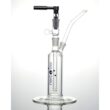Content
Regular drinking can irritate the digestive tract, damage the stomach lining, and interfere with nutrient absorption, increasing the risk of gastrointestinal issues. Physical discomfort from these effects can leave you feeling sluggish or low, sometimes mimicking early signs of depression. Alcohol can weaken the immune system, making it harder for the body to fight off infections and illnesses.
The Dangerous Side Effects of Opiate Abuse
Regular use can even shrink regions critical for learning and memory, like the hippocampus. However, abstaining from alcohol can facilitate recovery, leading to marked improvements in cognitive function. Individuals report experiencing less confusion and enhanced clarity in thought following detox, helping to stabilize mood swings and reduce anxiety. Mental illnesses are disorders that affect your mood, thinking, and behavior.
- We recently launched our in-app chatbot, Melody, powered by the world’s most powerful AI technology.
- Upon quitting alcohol, studies indicate that individuals may notice clearer thinking within weeks.
- As the body gradually eliminates alcohol and its byproducts, individuals may experience a resurgence in cognitive and emotional capabilities.
- Additionally, by this point, the brain is so convinced that it needs alcohol just to function properly that when there isn’t any alcohol in the body, the brain thinks something is wrong.
Exploring the Intersection of Alcohol, Detox, and Cognitive Wellness
To avoid intrusive thoughts or behaviors, some people with OCD turn to alcohol and drugs. However, instead of helping someone relax and escape their fears, substance misuse may make OCD worse. It’s important to check in with yourself to see whether the after-work drink at the pub is impacting your wellbeing and mental health. Remember, it’s not about having to stop these social activities, but rather finding a balanced approach.
Post-traumatic stress disorder and AUD
An unhealthy balance of bacteria in the gut due to alcohol use may contribute to worsening symptoms of mood disorders, depression, and anxiety5. Just as alcohol consumption causes a wide range of effects on the body and mind, so does the period of withdrawal. These effects contribute to day-after dread, even if you don’t have an anxiety disorder diagnosis. How long this anxiety (and other hangover symptoms) lasts depends on factors like how much you’ve consumed, your assigned sex at birth, and your weight. After detox, individuals often experience significant improvements in mental clarity. With sustained abstinence, the brain begins to regenerate neurotransmitters that were depleted by alcohol.
- Studies show most people can reduce how much they drink or stop drinking entirely.
- It lowers levels of GABA—making you feel less calm—and boosts glutamate, which increases anxiety.
- When someone suffers from alcoholism, they tend to go through three different phases of drinking.
- When alcohol use suddenly stops, the body is not accustomed to being alcohol free.
- Many individuals experience mood swings, increased anxiety, and depression as they withdraw from alcohol.
While short-term recovery signs can be encouraging, long-term improvements are essential for maintaining sobriety. Cognitive recovery is generally more robust in younger individuals compared to older adults, who may face prolonged deficits. Hence, engaging in repeated mental exercises and support programs can further accelerate recovery. Ultimately, sustained sobriety leads to better cognitive function and quality of life, reinforcing the importance of detox in the recovery process. It has been recognized as a mental illness since the 1980s, when the American Psychiatric Association identified alcoholism as a primary mental health disorder. Interestingly, the American Medical Association recognized alcoholism as a disease as early as the 1950s.
Substance Abuse Treatment
With continued use of alcohol or drugs, nerve cells in the basal ganglia “scale back” their sensitivity to dopamine, reducing alcohol’s ability to produce the same “high” it once produced. This is how one builds a tolerance to alcohol, which causes people to consume larger amounts to feel the same euphoria they once did. Post traumatic stress disorder (PTSD) involves long-term effects, such as anxiety, flashbacks, and trouble sleeping, following a traumatic event. Healthcare professionals may treat them in ways that target them together.
- However, instead of helping someone relax and escape their fears, substance misuse may make OCD worse.
- Although alcohol makes you fall asleep faster, it interrupts your natural sleep-wake cycle (or circadian rhythm).
- Mood swings resulting from bipolar disorder can lead to a wide range of mental and physical symptoms.
- Most experts agree that the chance for long-term recovery increases when co-occurring disorders are treated simultaneously.
Though recovery from cognitive impairment varies among individuals, positive changes can often be observed within weeks to months following detox, depending on prior alcohol consumption and individual circumstances. Substance use disorder (SUD) is a broader term that includes drug abuse and alcohol abuse. SUD and AUD are behavioral health conditions that can benefit from https://ecosoberhouse.com/ treatment by addiction medicine experts.
Opiate Withdrawal Timeline: What to Expect During Detox
As the body gradually eliminates alcohol and Substance abuse its byproducts, individuals may experience a resurgence in cognitive and emotional capabilities. Alcohol detox not only alleviates the physical dependence on alcohol but also lays the foundation for improved mental health and emotional stability. This transformative journey towards clarity requires persistence, support, and a holistic approach to recovery. Alcohol is dangerous for people with mental health disorders as it can make symptoms worse. In turn, that can cause someone to use more alcohol, as the symptoms of their mental illness may feel better in the short-term after consuming alcohol. But as they use more and more to combat symptoms of mental illness, alcohol use can develop into a serious addiction problem.
Alcohol affects the pleasure, reward, and motivation centers in the human brain. Excessive alcohol use alters brain chemistry and leads to physical, psychological, and social dysfunction. Most experts agree that the chance for long-term recovery increases when co-occurring disorders are treated simultaneously. Even in severe situations, recovery is possible with the right comprehensive treatment plan. Reach out to your physician, mental health professional, or addiction specialist for guidance.







